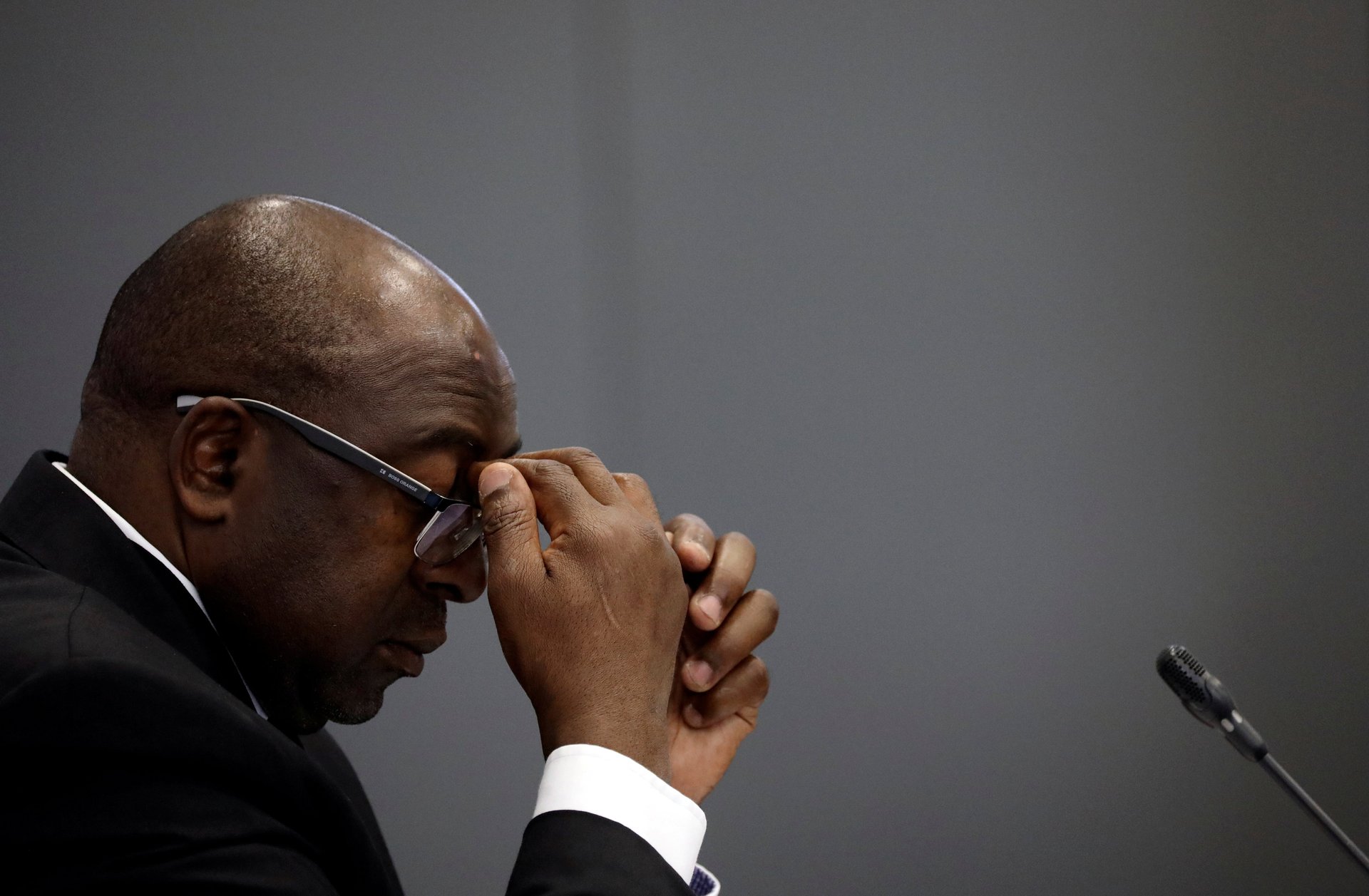A wealthy Indian family still wields influence over South Africa’s troubled finance ministry
South Africa has yet another new finance minister—the fifth in as many years. The shuffling in a portfolio that desperately needs stability is due to the continued influence of a wealthy immigrant Indian family who hold much power in South Africa, even from outside the country.


South Africa has yet another new finance minister—the fifth in as many years. The shuffling in a portfolio that desperately needs stability is due to the continued influence of a wealthy immigrant Indian family who hold much power in South Africa, even from outside the country.
Finance minister Nhlanhla Nene resigned on Tuesday Oct. 9 and his replacement was sworn in by the afternoon, former reserve bank governor and Mandela-era labor minister Tito Mboweni. Nene resigned after his reputation was damaged over revelations he came in contact with the Gupta family, friends of former president Jacob Zuma who became billionaires during his tenure. The brothers Ajay, Atul and Rajesh Gupta became the faces of corruption in South Africa’s public imagination, even if they were hardly the only perpetrators.
For years, Nene was hailed as the good guy, the incorruptible minister who lost his job precisely because he would not bow. Zuma removed Nene in 2015 over his refusal to okay a deal that would see Russian companies build expensive but ultimately unnecessary nuclear power stations in South Africa.
Nene’s replacement, a little-known backbencher named Des van Rooyen, was reportedly handpicked by the Guptas. He lasted three days until he was replaced by Pravin Gordhan who faced immense pressure for his refusal to steer state resources toward the Gupta business empire, until Zuma ultimately replaced him with a minister who was arguably, more sympathetic to the Gupta cause, Malusi Gigaba. With a new president promising to clear out corruption and boost the shrinking economy, Nene was brought back into cabinet.
Yet when he was called to testify in a commission of inquiry into the extent of the Gupta’s influence over Jacob Zuma’s government last week, Nene’s halo quickly disappeared. He had in fact met with the Gupta family several times when he first served as deputy finance minister between 2010 and 2013.
Nene failed to disclose this to president Cyril Ramaphosa when he was reinstated as finance minister and lied when he told a reporter in 2016 that he had never been invited to any “engagements” at the Gupta family compound in a wealthy Saxonwold suburb in Johannesburg.
The Guptas have since vacated that compound for Dubai since Zuma stepped down, but their influence still holds, even passively. The mere fact Nene sat down with them was enough to sully his reputation. Yet, Nene is hardly the only cabinet minister or African National Congress member to have met with the Guptas.
Another former finance minister, Gigaba, is also facing questions about whether he fast-tracked the Guptas’ citizenship while he was minister of home affairs. He admitted to interacting with the Guptas on several occasions, but shows no sign of falling on his sword. Even members of the official opposition, vehement critics of corruption in the ANC government, fell under the family’s influence when the Guptas donated money to the Democratic Alliance. On social media, South Africans have only half-joked that parliament would be empty if MPs followed Nene’s example.
During the Zuma years, the Guptas had a hand in hiring and firing ministers who managed portfolios linked to their portfolio of businesses from mining to media. They were known to have offered Nene’s own deputy minister $44 million to be the finance minister at their bidding. All of this was well-covered as an investigation into a phenomenon known as state capture, but in the wake of Zuma’s departure, the country is only now beginning to reckon with how a family from Saharanpur in northern India came to wield so much power in South Africa.
Sign up to the Quartz Africa Weekly Brief here for news and analysis on African business, tech and innovation in your inbox